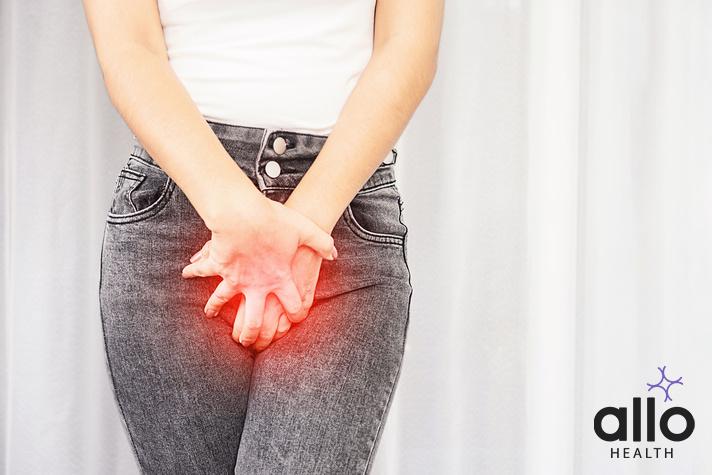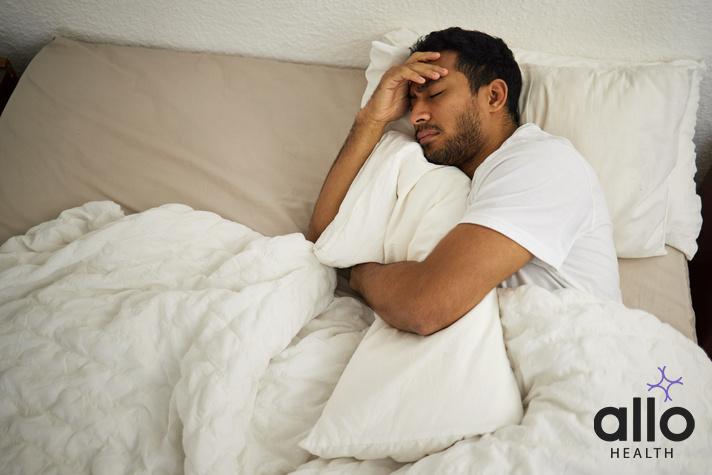What Are The Symptoms And Complications Of Pubic Lice (Crabs)?

Allo Health is dedicated to personalized well-being, offering support and trusted information tailored to individual health goals. The platform emphasizes human-generated content, led by a distinguished medical team of experts, including physicians and sexual health specialists. Their commitment to credibility involves rigorous fact-checking, authoritative research, and continuous updates to ensure accurate, up-to-date information. Allo Health's unique approach goes beyond conventional platforms, providing expert-led insights and a continuous commitment to excellence, with user feedback playing a crucial role in shaping the platform's authoritative voice.

Dr Thanushree, has her MBBS from Kanachur Institute of Medical Sciences, Mangalore
Why This Was Upated?
Our experts continually monitor the health and wellness space, and we update our articles when new information became available.
Updated on 10 February, 2025
- Article was updated as part of our commitment to diversity, equity, and inclusion.
"The following blog article provides general information and insights on various topics. However, it is important to note that the information presented is not intended as professional advice in any specific field or area. The content of this blog is for general educational and informational purposes only.
Book consultation
The content should not be interpreted as endorsement, recommendation, or guarantee of any product, service, or information mentioned. Readers are solely responsible for the decisions and actions they take based on the information provided in this blog. It is essential to exercise individual judgment, critical thinking, and personal responsibility when applying or implementing any information or suggestions discussed in the blog."
Pubic lice, commonly known as “crabs,” are parasitic insects that infest the pubic hair and genital area of humans. While pubic lice infestations are usually not life-threatening, they can cause discomfort and lead to complications if left untreated. In this article, we’ll explore the symptoms of pubic lice infestation, as well as potential complications that may arise from untreated cases.
Symptoms of Pubic Lice Infestation
- Intense Itching: The most common symptom of pubic lice infestation is intense itching in the genital area. This itching is often worse at night when the lice are most active.
- Visible Lice or Nits: Infested individuals may notice tiny insects (adult lice) crawling in their pubic hair. They may also see small white or yellow eggs (nits) attached to the hair shaft near the skin.
- Skin Irritation: Pubic lice bites can cause skin irritation, leading to redness, inflammation, and sometimes the formation of small red or blue spots on the skin.
- Difficulty Sleeping: The itching and discomfort caused by pubic lice infestation can interfere with sleep, leading to irritability and fatigue.

Potential Complications
While pubic lice infestations are generally not considered serious, they can lead to complications if left untreated:
- Secondary Infections: Constant scratching of the affected area can cause breaks in the skin, increasing the risk of bacterial infections. Infected individuals may develop sores, boils, or abscesses in the genital area.
- Psychological Distress: The persistent itching and discomfort associated with pubic lice infestation can cause significant psychological distress, leading to anxiety, depression, or social withdrawal.
- Sexual Transmission of Other Infections: Pubic lice infestations can coexist with other sexually transmitted infections (STIs) such as chlamydia, gonorrhea, or human papillomavirus (HPV). Infested individuals may be more susceptible to transmitting or acquiring these infections due to the close physical contact involved in sexual activity.
- Transmission to Other Body Areas: In some cases, pubic lice may spread to other body areas, such as the armpits, chest, abdomen, or facial hair. This can occur through close contact or sharing contaminated clothing or bedding.

Recognizing the symptoms of pubic lice infestation, such as intense itching, visible lice or nits, and skin irritation, is essential for prompt diagnosis and treatment. While pubic lice infestations are not typically life-threatening, they can cause discomfort and lead to complications if left untreated. Seeking medical attention for diagnosis and treatment is important to alleviate symptoms, prevent complications, and reduce the risk of transmission to others. Additionally, practicing good personal hygiene and avoiding close contact with infested individuals can help prevent the spread of pubic lice and other sexually transmitted infections.








































